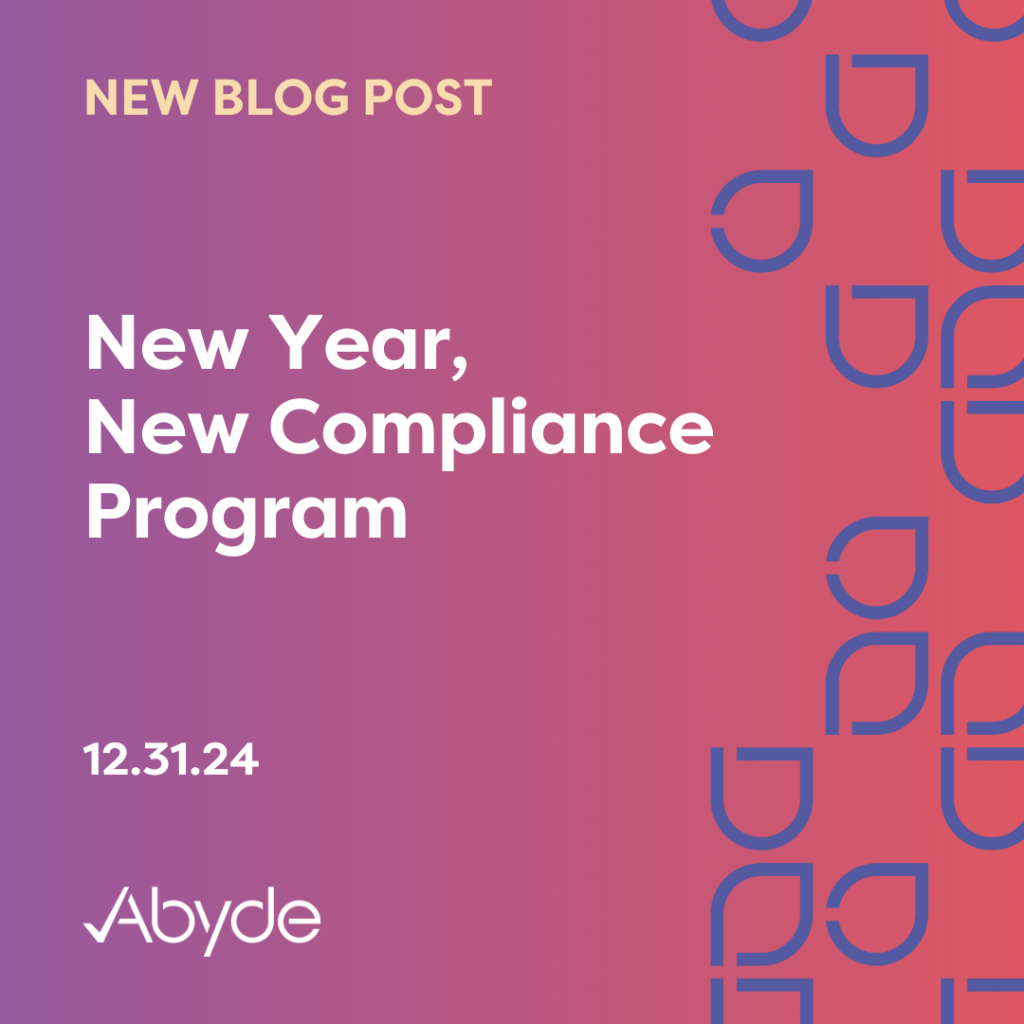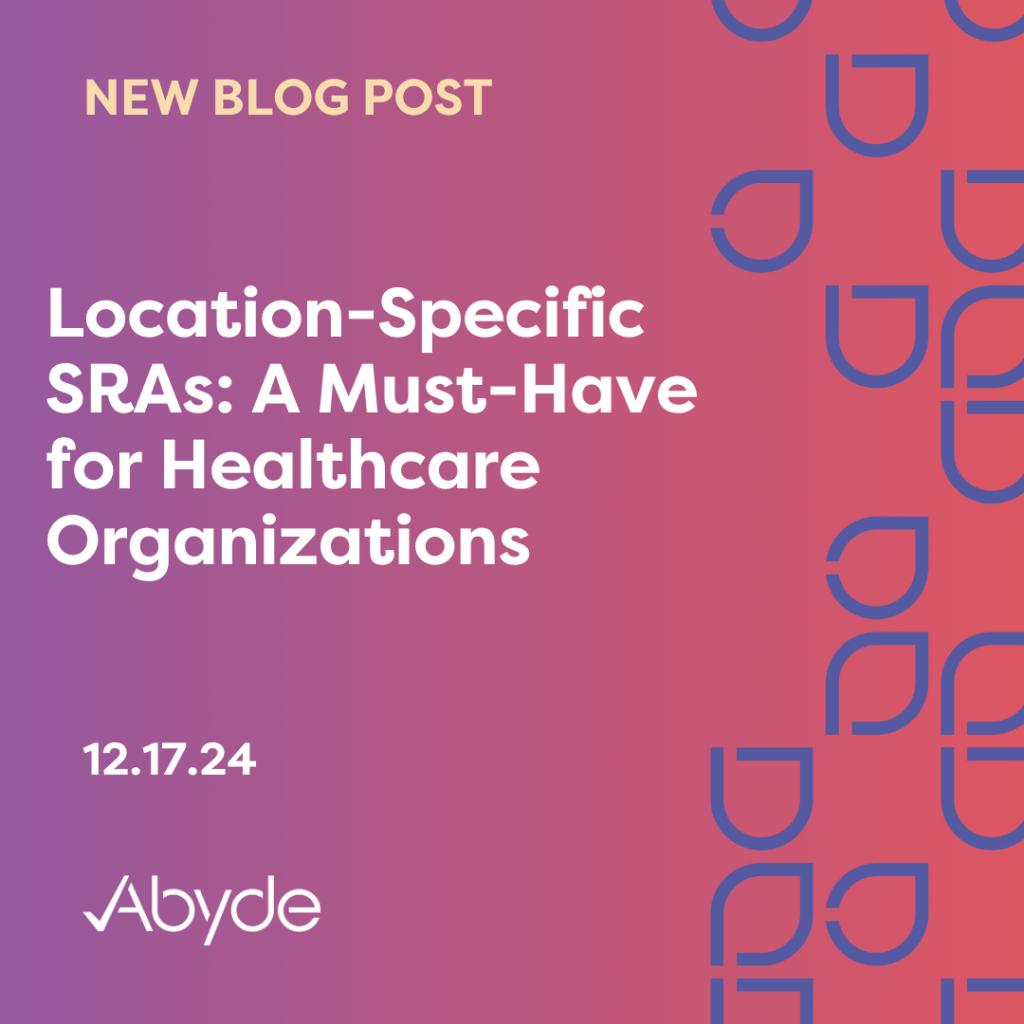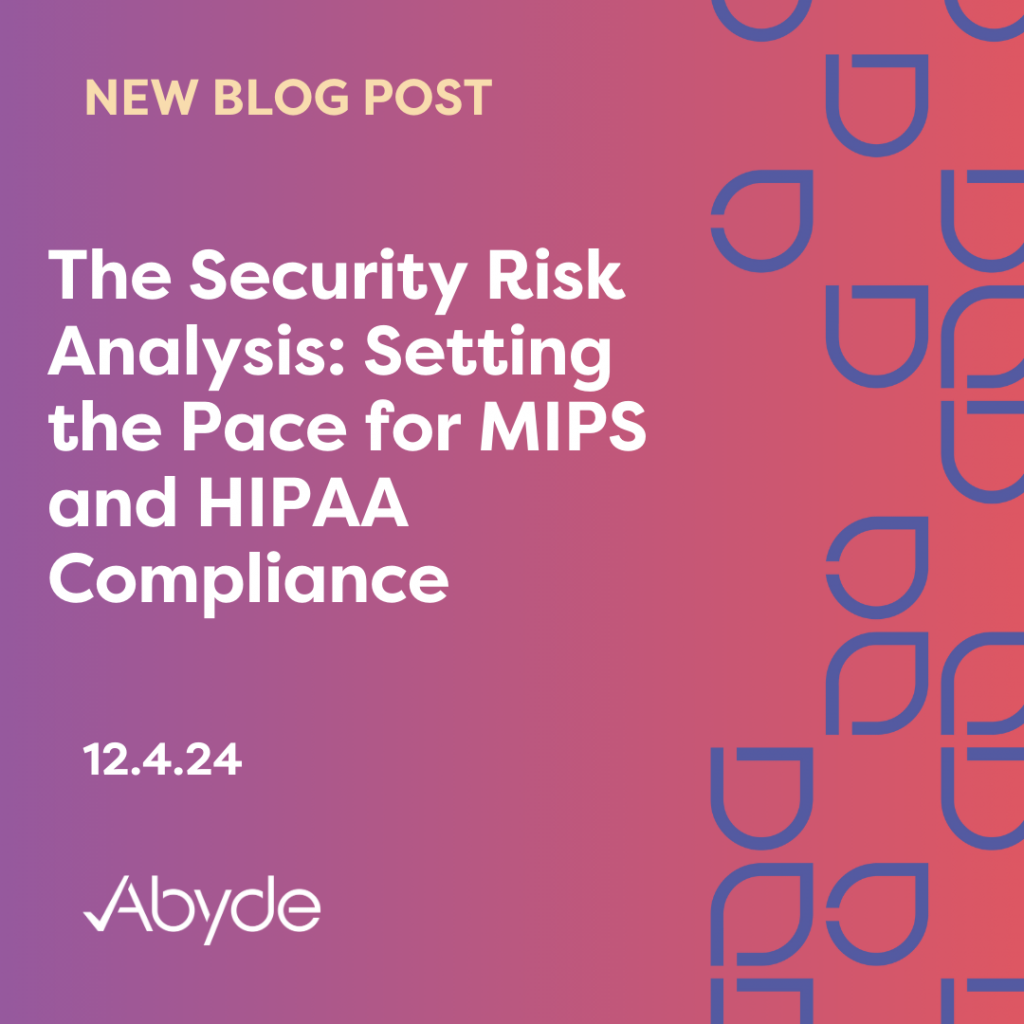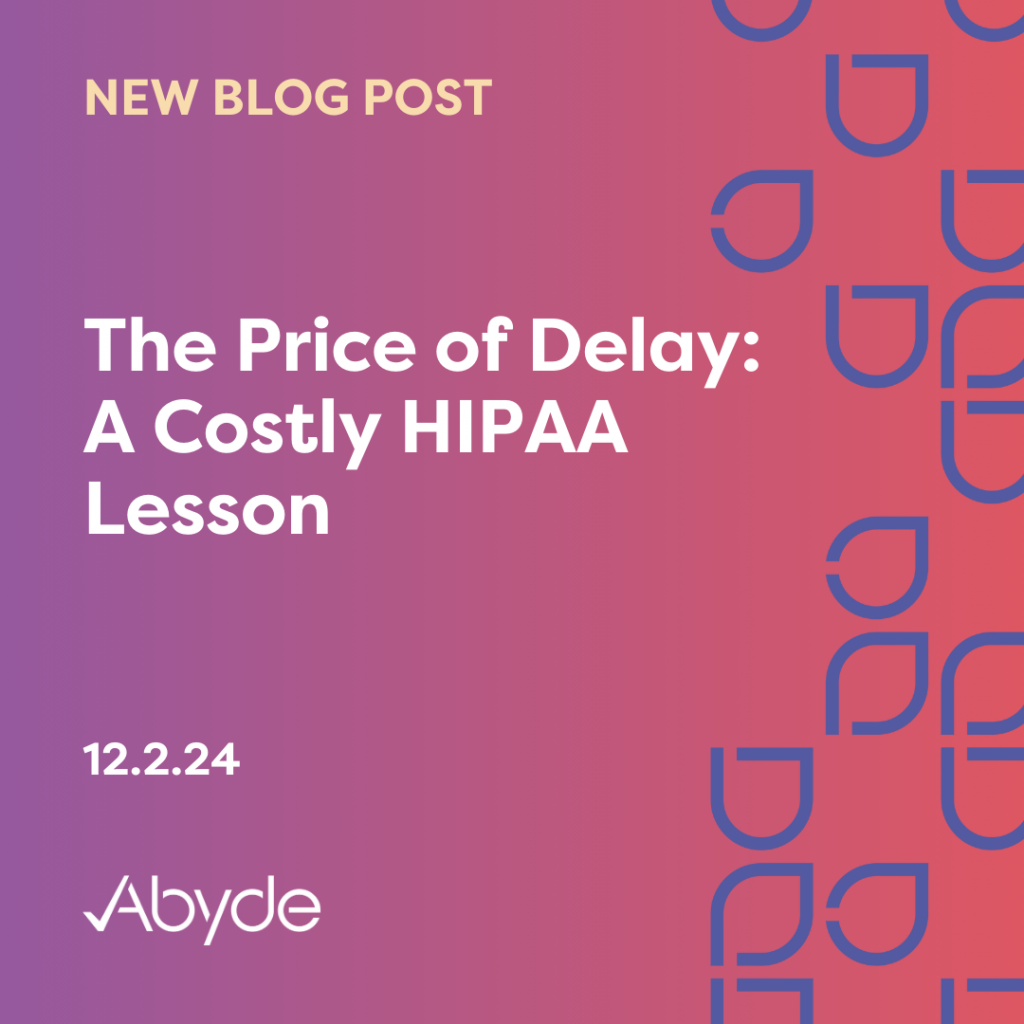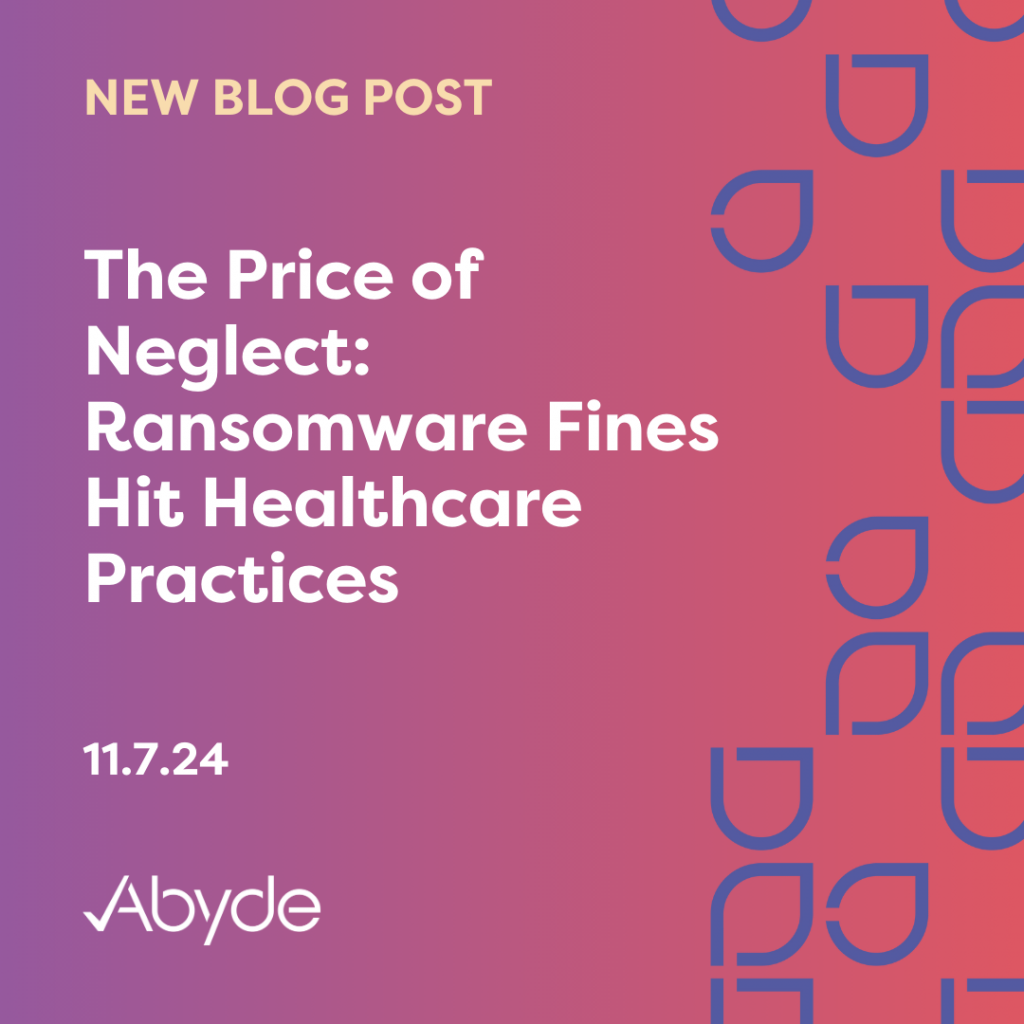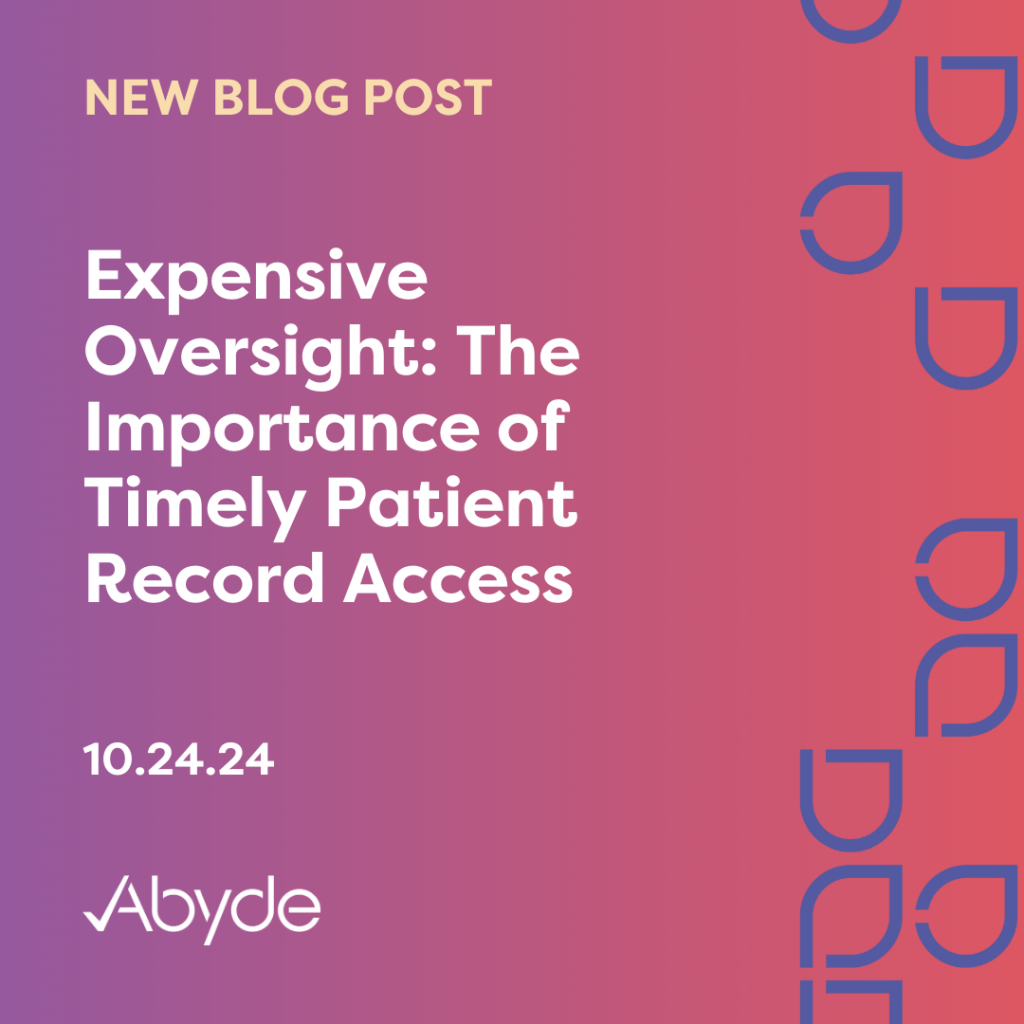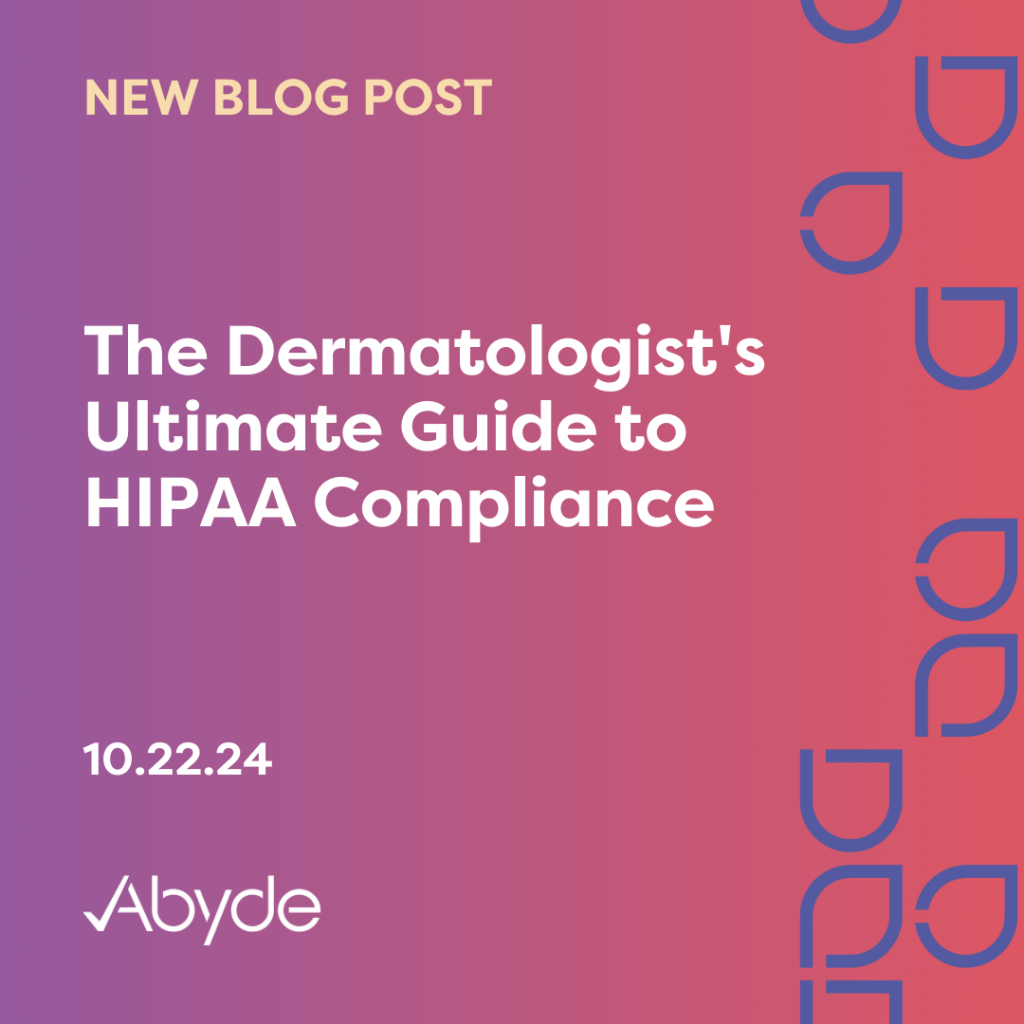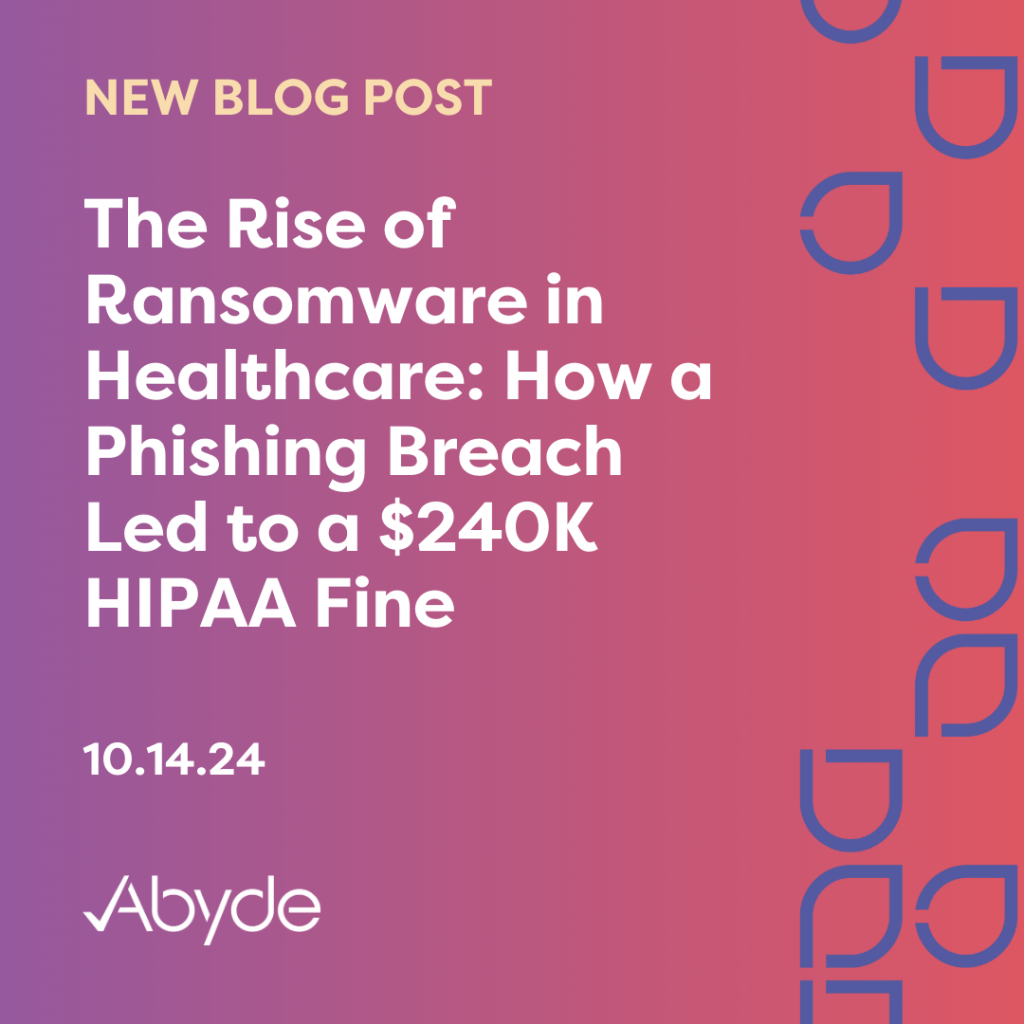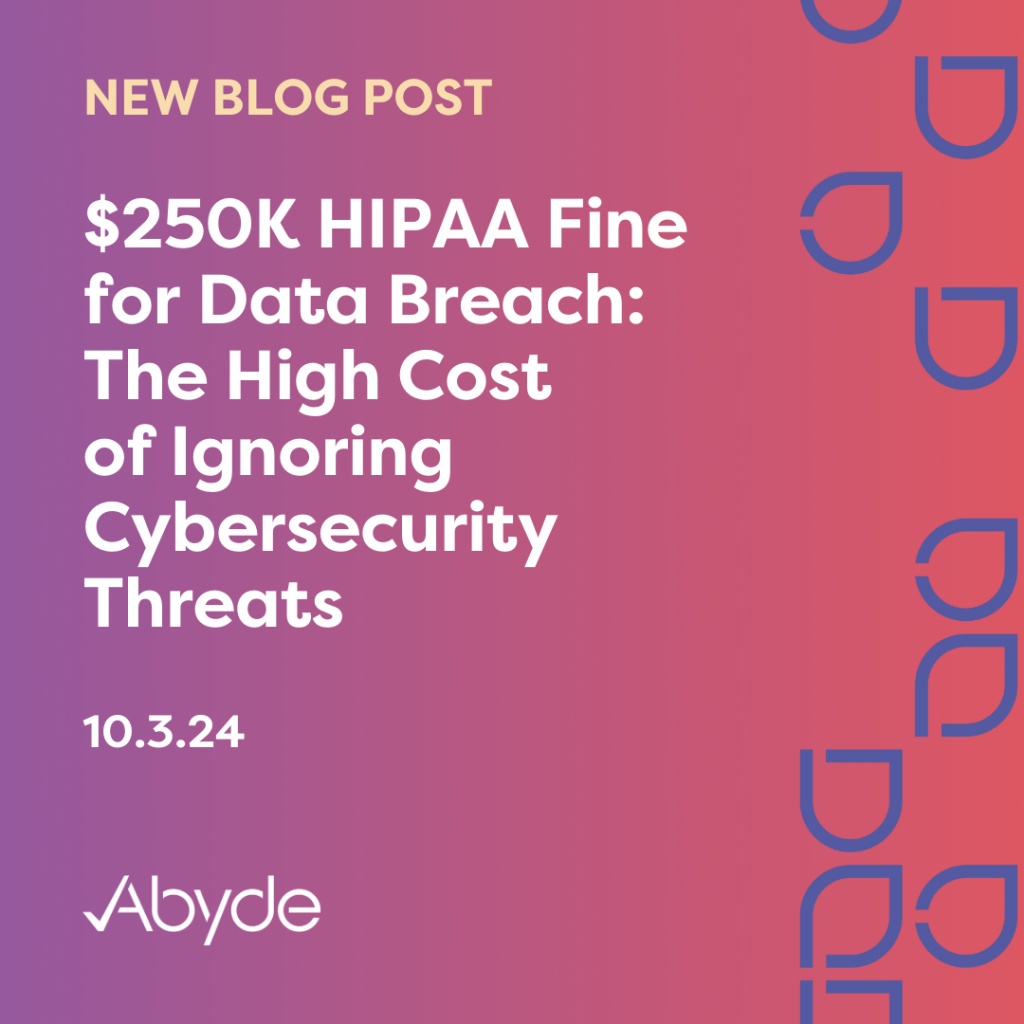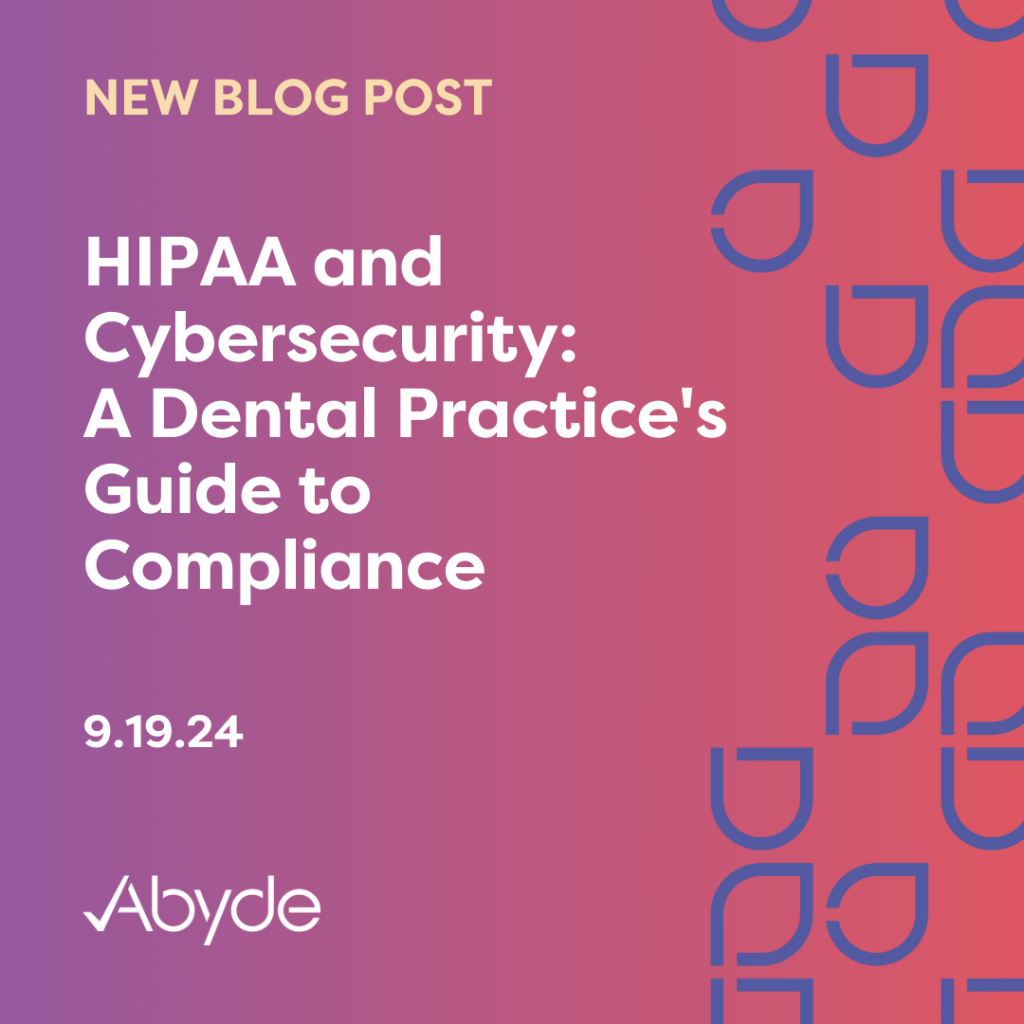December 31, 2024 After a year of record-breaking breaches and fines in 2024, starting the new year with your HIPAA compliance buttoned up is crucial. A compliance program is a comprehensive plan to ensure compliance with HIPAA guidelines. It’s much more than yearly training; it’s what you do daily to uphold your commitment to patient data safety. The new year is about implementing new routines and actions for improvement. That’s why now is the time to get the right compliance program in place. Here are three key goals to help you start on the right track in 2025. Complete a Security Risk Analysis The first step to HIPAA compliance is completing a Security Risk Analysis (SRA). The SRA is an assessment of the administrative, technical, and physical safeguards your practice has in place to protect patient data. While the SRA might seem like a simple requirement to adhere to HIPAA regulations, it is actually one of the most overlooked, with only 14% of practices able to present documentation of a compliant SRA. The SRA helps your practice identify vulnerabilities and creates a roadmap for HIPAA compliance, guiding your practice on what needs to be addressed. This documented analysis of your practice is the foundation of a compliant practice. Establish a Culture of Compliance A culture of compliance is the understanding that everyone—from leadership to staff—recognizes the importance of protecting patient data. To achieve a compliant practice, it’s vital that all staff understand and continuously commit to following HIPAA. The culture of compliance involves much more than just training; it encompasses every decision employees make when dealing with data. This includes using the appropriate encryption measures when sending emails to patients and ensuring that staff members discuss only the minimum necessary amount of Protected Health Information (PHI) when required. To cultivate a culture of compliance in your practice, staff must have access to comprehensive resources to train, learn, and document anything regarding PHI. This could include interactive training portals, required access logs, and easy access to all learning materials. By providing streamlined compliance, your practice not only establishes a culture of compliance but also enforces it, holding all staff accountable if they don’t adhere to HIPAA guidelines. Get Organized – Digitize Documentation In the new year, do a self-audit of your HIPAA documentation. If asked, could you easily find specific policies? While meeting HIPAA requirements is essential for a compliant practice, you must also be able to present documentation as proof. The year is about embracing change. While most might picture their HIPAA manual as an overflowing binder, this is not the only option for managing documentation. It’s time for a change. Cloud-based compliance programs allow you to access your HIPAA manual easily by logging into your account. Gone are the days of rifling through a binder to find a specific policy or procedure—a web-based HIPAA manual easily generates and organizes your documentation, saving you time and keeping all versions of your documentation in a centralized location. Sticking to Resolutions If achieving streamlined HIPAA compliance has been a long-avoided New Year’s Resolution, this is the year to begin. With the right program, you can simplify compliance and have complete visibility into what is necessary to remain compliant. To learn more about how to get compliant this new year, schedule a consultation with a compliance expert today.
Location-Specific SRAs: A Must-Have for Healthcare Organizations
December 17, 2024 Keeping all locations in line with HIPAA regulations can be quite a challenge, especially when managing a multi-location practice. It’s a complex puzzle that requires careful attention to detail and a proactive approach to ensure compliance across the board. And we hate to break it to you, but a blanket Security Risk Analysis for your organization isn’t enough. A Security Risk Analysis, or SRA, is a thorough review of your organization’s physical, administrative, and technical safeguards to protect patient data. Even when you’re managing compliance at a single location within a multi-location organization, you are responsible for ensuring an SRA is completed for your location. The Office for Civil Rights (OCR) is serious about this requirement, as indicated by a recent significant fine. A penalty of over $500,000 was recently announced for the Children’s Hospital of Colorado system. While this investigation was sparked by a phishing attack, one of the major findings was missing SRAs for all locations. Completing this SRA is imperative. As the OCR spearheads new enforcement and initiatives, it’s time to get compliant. What is a SRA? The SRA is an in-depth review of everything your practice does to ensure patient data is safe. This means everything from whether your practice utilizes alarms and codes on doors to the servers you use and even how your staff handles patient intake, like how the sign-in sheet process works. The SRA is the first step of a compliant practice because it allows you to review your vulnerabilities and make changes to uphold your commitment to keeping data safe. The SRA is also a requirement for MIPS. Unfortunately, the SRA is a commonly missed requirement for medical practices. In fact, 86% of all practices could not show an adequate SRA in the last round of random HIPAA audits. Completing a sufficient Security Risk Assessment (SRA) is essential for maintaining a compliant medical practice. This process is closely linked to the Office for Civil Rights (OCR) Risk Analysis Initiative, which mandates that medical practices and organizations carry out this required assessment. Recently, the Bryan County Ambulance Authority was fined $90,000 for failing to conduct an SRA, marking the first enforcement action under this new initiative. This incident demonstrates the OCR’s commitment to this initiative and its dedication of resources to ensure compliance. Importance of Location-Specific SRAs When conducting a SRA, assessing every location within your organization is vital. While performing a single SRA for the entire entity might seem easier, compliance is more intricate and requires ongoing attention rather than being a one-off endeavor. Each location has distinct vulnerabilities that must be acknowledged and addressed. For instance, one location might have different vendors than another, and another location might be in an older building, with different security to keep Protected Health Information (PHI) safe. Although some overarching requirements may come from the main location, capturing each site’s specific conditions is essential. This thorough documentation demonstrates that every location takes compliance seriously, addresses vulnerabilities, and keeps patient data safe. How to Complete an SRA With the right resources, managing and completing an SRA for a multi-location practice can be simplified. Organization is key: ensuring each location completes all SRAs and can be easily accessed in a centralized location. Your organization can efficiently complete this requirement by having a tailored set of questions for each location. To learn more about streamlining your multi-location SRAs for your organization, schedule a consultation with a HIPAA expert today.
The Security Risk Analysis: Setting the Pace for MIPS and HIPAA Compliance
December 4, 2024 As a healthcare provider, tackling your daily to-do list probably feels like running a marathon without a finish line at times. You’re tasked with managing a successful business, keeping up with ever-changing legislation and new technology while ensuring that your top priority of patient care never falls behind. Despite the challenging course, there’s a benefit to keeping pace with both quantity and quality. Providers are rewarded for going the extra mile thanks to Value-Based payment programs like MIPS and other government incentives like the HIPAA Safe Harbor Law. What is MIPS? You’ve most likely heard of the Merit-based Incentive Payment System (MIPS) and might already be a participant in it. Whether it’s a Quality Payment Program or new legislation passed into law, the government continually emphasizes the importance of being proactive rather than reactive and providing incentives for doing so. This is why it’s valuable to know whether your organization is eligible to participate in government programs (you can check here). Many of these different program requirements align with the standards your practice already has to meet under HIPAA law—protecting your patients, checking off compliance requirements, and receiving incentives can often be done all in one stride. To take a quick step back, MIPS is one of two payment tracks under the Medicare Quality Payment Program. The Centers for Medicare and Medicaid Services (CMS) uses this system to measure eligible clinician performance and reward high-value, low-cost care. MIPS participants can receive a payment adjustment to their Medicare reimbursements based on their performance scores across four different categories: Quality: The type of care you deliver based on specific measures of performance. Promoting Interoperability: Focuses on patient engagement and electronic exchange of information using Electronic Health Record (EHR) technology to improve patient access to their health information and exchange of information between providers. Improvement Activities: Your participation in clinical activities that work towards improving care coordination and patient engagement and safety. Cost: Assesses the cost of care you provide in relation to your Medicare claims. The Importance of the Security Risk Analysis (SRA) Before you can engage with the various performance measures, you must first meet a prerequisite for participating in the MIPS Promoting Interoperability performance category. This requirement is crucial not only for achieving HIPAA compliance but also for benefiting from other government incentives: the Security Risk Analysis (SRA). Conducting an SRA involves evaluating any potential risks to your organization’s electronic Protected Health Information (ePHI) and implementing necessary security updates and safeguards to address any identified vulnerabilities. Your organization must complete an SRA at least once a year to comply with MIPS and HIPAA standards. Additionally, it’s important to review and update the assessment regularly throughout the year to reflect any changes in your processes. Getting Compliant for MIPS Beginning your compliance journey can be overwhelming, but it is essential to take advantage of government initiatives such as MIPS. Intelligent software solutions can help keep your practice on track by outlining the requirements for HIPAA compliance and offering a streamlined SRA that meets MIPS standards. To learn more about how to become compliant for MIPS, schedule a meeting with a compliance expert today.
The Price of Delay: A Costly HIPAA Lesson
December 2, 2024 Over a million dollars in HIPAA fines have been levied in the past few months, and like this winter’s snow, the fines continue to pile up, with a $100,000 fine recently announced. Last week, Rio Hondo Community Mental Health Center, an outpatient program managed by the Los Angeles Department of Health, was fined for a Right of Access violation. This marks the 51st enforcement of the Right of Access rule, highlighting the importance of handling patient records in a timely manner. What Happened? A patient requested a copy of their records on March 18, 2020. As we all know, March 2020 was marked by the beginning of the unprecedented COVID-19 virus, which led to the mental health center’s closure after the Governor of California put into action a “stay-at-home” order. However, the center reopened at the beginning of May 2020, allowing some staff to return to the facility. While the patient was told her records would be ready at this time, she was misinformed and began the summer with a flurry of calls and other forms of contact to request her medical records. After her requests were unfulfilled several times, the patient filed a complaint with the Office for Civil Rights (OCR) at the end of August 2020. The OCR then began investigating the Rio Hondo at the beginning of October. The medical records were finally sent on October 20, 2020, 216 days after the first request. The Right of Access rule requires Covered Entities to provide patients with their medical records within 30 days of the initial request. While the medical center was under a “stay-at-home” order during those 30 days, this was still significantly longer than the extension period of an additional 30 days and could have been handled when it was first deemed safe for staff to return to the medical center. This fine comes after a series of Right of Access fines, including another significant fine of $70,000 imposed at the end of October. The numerous fines issued this past year regarding the Right of Access initiative demonstrate the government’s commitment to this important aspect of patients’ rights. Protect Your Practice from Costly Mistakes Even during the peak of the global health crisis, HIPAA regulations stayed in effect. Implementing software solutions can help safeguard your practice. To ensure your staff remains compliant, it is highly recommended to use automated software that keeps you and your team in check, regardless of the circumstances. Schedule a consultation today to learn more about automated compliance for your practice.
The Price of Neglect: Ransomware Fines Hit Healthcare Practices
November 7, 2024 Healthcare practices felt quite a scare on Halloween, with over half a million dollars in fines levied on medical practices. These practices were fined for not taking the necessary precautions against ransomware breaches. The two practices impacted on this day of significant fines include Plastic Surgery Associates of South Dakota in Sioux Falls (PSASD), a multi-location organization, and the Bryan County Ambulance Authority (BCAA), an Oklahoma emergency medical services provider. PSASD was fined $500,000, and BCAA was fined $90,000. These significant fines are just the precipice of the future of healthcare breaches, with ransomware breaches increasing 264% since 2018. What Happened? Major ransomware attacks unfortunately impacted both of these healthcare providers. For PSASD, a breach was discovered that infected nine workstations and two servers in July 2017. This breach impacted over ten thousand patients, putting their data at risk. The malicious actors utilized trial and error to hack into the organization’s system. The data was unable to be restored. The investigation revealed significant gaps in their compliance program, including a missing Security Risk Analysis, inadequate policies and procedures for data handling and breach reporting, and insufficient training. This $500,000 penalty also includes two years of monitoring by the Office For Civil Rights (OCR). For the BCAA, its ransomware attack began in November 2021, but wasn’t reported until May of the following year. After a breach, depending on the severity, you must notify the OCR within 60 days. Since this breach impacted over 14,000 patients or over 500 people, it is considered a large breach. Similar requirements, such as a Security Risk Analysis, adequate policies, a risk management plan, and other safeguards, were missing as found in this investigation. It’s $90,000 fine includes a Corrective Action Plan as well. Protecting Your Practice from Ransomware Ransomware attacks will continue to affect our healthcare system. Although complete immunity is impossible, there are many precautions you can take to protect your practice. Implementing the right technical safeguards, such as firewalls, antivirus software, and a qualified IT team is crucial. Additionally, you can streamline your HIPAA compliance by using intelligent software solutions that help identify your compliance needs unique to your practice. In the event of an attack, these solutions can also guide you on how to respond effectively. To learn more about these smart solutions, meet with a compliance expert today.
Expensive Oversight: The Importance of Timely Patient Record Access
October 24, 2024 There has been a flurry of HIPAA fines in the past few weeks, with over half a million dollars levied in the last month. Just one example is Gums Dental Care, LLC, a small dental practice in Maryland that was fined for a Right of Access violation. Right of Access violations, which involve failing to provide medical records in a timely manner, are a common HIPAA mistake. Another violation for this was issued in August. What Happened? A patient requested her medical records from Gums Dental on April 8, 2019. After not receiving them, she issued a complaint to the OCR in May 2019. The OCR contacted Gums Dental Care for technical assistance and believed the case was over. This was just the beginning. This case spanned years, with a second complaint filed in August 2019 and the OCR sending several data requests through letters and calls to Gums Dental. On October 1, 2020, the OCR sent Gums Dental a proposed resolution agreement and corrective action plan. At the end of the month, Dr. Gumbs wanted to present her case in front of a judge, believing the patient would commit Medicaid fraud with her records. She also said that the complainant didn’t pay a $25 administrative fee to release the medical records through mail. First, patients should always have access to their medical records, regardless of their reasons. Second, the fee would be waived if the patient requested it digitally, not through mail. In December 2020, the OCR issued a Letter of Opportunity to Gums Dental. At the beginning of the next year, Dr. Gumbs once again justified her refusal to provide the records since she believed her patient would commit a crime with them. She also believed her website wasn’t secure enough to send them digitally. However, Gums Dental didn’t attempt to send the records at all. By the time the Notice of Proposed Determination was sent in March 2022, roughly three years after the first medical record request, Gums Dental faced a Civil Monetary Penalty fine as high as $7,676,692. However, the OCR ultimately levied a $70,000 fine, recognizing the smaller size of the dental practice. How to Protect Your Practice Common HIPAA fines often involve Right of Access violations. At the federal level, practices are required to provide patients with their medical records within 30 days, and some states have an even shorter timeline. Navigating these unique regulations can be challenging, so having an intelligent solution is crucial. Smart software can streamline compliance for your practice by generating policies and procedures tailored to your needs. These solutions also include access to a team of compliance experts who can help answer your questions and ensure that you are interacting with patients in a HIPAA-compliant manner. To learn more about software solutions, with a compliance expert here.
The Dermatologist’s Ultimate Guide to HIPAA Compliance
October 22, 2024 Did you know that a dermatology center was fined over $300,000 for violating HIPAA? HIPAA compliance is not always top of mind when managing your dermatology practice. Administrative tasks can easily take a back seat with a focus on diagnosing and treating skin conditions. Nevertheless, it’s crucial to prioritize HIPAA compliance. Discover what steps you need to take to ensure the safety of your dermatology practice. What’s Protected Health Information? Protected Health Information (PHI) is sensitive data that can personally identify a patient. Examples of PHI include a social security number, birth date, medical records, and even images of skin ailments for dermatologists. These images can contain personally identifiable information, such as tattoos and unique birthmarks. When working with patients, it’s crucial to ensure all images and other forms of PHI are encrypted and protected behind essential safeguards to secure patient information. Social Media 101s When sharing images of your patient’s treatment, such as before-and-after images of acne treatment, it’s important to do so compliantly. While you might think you’re sharing a feel-good story, patient images are considered Protected Health Information (PHI), and sharing them without consent could violate their privacy. You need the patient’s signed media consent form to share these images and patient reviews on social media compliantly. This form ensures that the patient understands and agrees to use their image and treatment details being shared with the public. Improper Disposal The largest dermatology HIPAA fines, totaling over $300,000, were imposed due to improper disposal. Some states have even stricter laws regarding discarding old patient files, which must be retained for at least six years on a federal level. These files also need to be encrypted throughout the creation to disposal process. When getting rid of sensitive information, ensure it is shredded and properly disposed of. Partner with a disposal company specializing in medical paperwork and waste and have a Business Associate Agreement in place. How Software Solutions Can Help Dermatology helps patients feel comfortable in their own skin, both literally and figuratively. Implementing the appropriate safeguards to protect patients’ data is just as important. By utilizing smart software, you can see where your dermatology practice stands and what you need to do to be compliant. To learn how you can protect your dermatology practice, schedule a consultation with an expert.
The Rise of Ransomware in Healthcare: How a Phishing Breach Led to a $240K HIPAA Fine
October 14, 2024 Unfortunately, the future of data breaches is ransomware, accounting for nearly two-thirds of data breaches. As ransomware remains a significant threat in the healthcare sector, another HIPAA fine has been issued concerning a ransomware incident. Recently, a healthcare organization was fined $240,000 following ransomware attacks, including phishing, that compromised the Protected Health Information of over 85,000 patients. What happened? The Center of Orthopaedic Specialists merged with Providence Medical Institute, a healthcare system in southern California. In February 2018, during the transition, an employee clicked on a malicious link from a phishing attempt, which encrypted over 85,000 files with ransomware. Subsequently, two more successful ransomware attacks were launched on the already vulnerable IT system. Between these attacks, PMI restored data using backup tapes. In the final ransomware attack, the malicious actors used stolen credentials from previous attempts to remotely access PMI’s systems. What could they have done? After the breach, several cybersecurity mistakes that affected almost 100,000 patients were brought to light. Before merging with PMI, the Center of Orthopaedic Specialists partnered with another IT company, Creative Solutions in Computers. However, PMI failed to sign a Business Associate Agreement with the IT company during the transition, a crucial HIPAA requirement. This agreement ensures that both parties understand and take the necessary precautions to protect PHI. Furthermore, PMI made numerous IT and cybersecurity mistakes, such as sharing logins, not properly separating private networks from public networks, failing to monitor access controls, and not encrypting ePHI, which allowed anyone with access to view it. The lack of proper IT infrastructure, which could have been easily avoided, significantly impacted numerous patients. What’s next? After the recent HIPAA fine, it’s crucial for your practice to take the necessary precautions and implement cybersecurity measures to safeguard your patients’ data. When establishing a culture of compliance for your practice, using smart software solutions can help you assess your practice’s status and offer efficient solutions to meet requirements, such as electronically managed Business Associate Agreements. To find out more about how intelligent software solutions can protect your practice from cyber attacks, schedule a consultation with a compliance consultant.
$250K HIPAA Fine for Data Breach: The High Cost of Ignoring Cybersecurity Threats
October 3, 2024 Ransomware remains a significant threat to the healthcare industry, causing nearly two-thirds of data breaches. The Office for Civil Rights imposed a $250,000 HIPAA fine on Cascade Eye and Skin Centers, which provides ophthalmology and dermatology care in Washington state. This fine highlights the ongoing impact of ransomware attacks on the healthcare sector and emphasizes the importance of protecting medical practices. What Happened? In May 2017, hackers held almost 300,000 electronic Protected Health Information (ePHI) files at Cascade Eye and Skin Centers for ransom. The practice lacked essential safeguards, such as a thorough Security Risk Analysis and effective data access monitoring, leaving patient data vulnerable to malicious actors. The Aftermath The $250,000 fine is a stark reminder of the OCR’s commitment to enforcing HIPAA compliance against cybercrimes. Several ransomware fines have been levied in the past year, and unfortunately, this trend is expected to continue as ransomware attacks against healthcare organizations rise. In addition to the substantial fine, the practice is subject to a Corrective Action Plan (CAP), with the OCR overseeing Cascade Eye and Skin Centers as it implements necessary initiatives and measures to safeguard its operations from cybersecurity breaches. Protecting Your Practice While no healthcare practice can be completely immune to cyber threats, there are proactive steps you can take. By implementing preventive measures, you can stop cyberattacks before they impact your practice. Implementing a comprehensive Security Risk Analysis can help identify vulnerabilities and inform your risk management strategy, providing a comprehensive overview of what your practice currently has in place. Encrypting data provides another layer of protection by making it inaccessible to unauthorized individuals. Firewalls and antivirus software can also act as barriers to malicious attacks. Beyond technical safeguards, a well-developed Disaster Recovery Plan is essential for minimizing the impact of a breach. Having a plan in place can help ensure a swift and effective response to incidents and limit disruption to patient care. Remote access and support capabilities can also be critical in managing compromised systems and restoring operations quickly. As technology continues to transform the healthcare industry, your compliance program should also evolve. By utilizing automated software, you can streamline compliance efforts, receive expert guidance, and stay informed about the latest cybersecurity threats. Schedule a consultation with a compliance expert to learn more about how software solutions can help protect your practice.
HIPAA and Cybersecurity: A Dental Practice’s Guide to Compliance
September 19, 2024 Did you know that medical information is one of the most valuable pieces of information for hackers to obtain? A health record sells for ten times the amount compared to a credit card on the dark web. In today’s digital world, technology has brought significant advancements to how dental practices operate, from communicating with patients to reviewing dental records. However, it has also introduced new challenges related to practice safety. Implementing strong cybersecurity measures is crucial for protecting your patients. Let’s dive into how to safeguard your practice and keep your patients safe in today’s cyber world. Complete a Security Risk Analysis (SRA) A requirement under HIPAA, the Security Risk Assessment (SRA) sets a benchmark for your dental practice’s compliance. The SRA highlights risks your practice might face, including technical safeguards and recommended cybersecurity measures. By monitoring the existing measures, you can identify non-compliant gaps and learn best practices to better protect your organization. Establishing a strong foundation for your practice brings you one step closer to HIPAA compliance by showing you how to keep your patient data secure. Establish Access Controls One of the most common HIPAA violations is improper access to electronic Protected Health Information (ePHI). Robust access controls are essential to prevent this. Each staff member should have a unique login with permissions strictly aligned to their job duties. These logins should also require staff to change their passwords periodically, including at least eight characters with symbols, numbers, and lowercase and uppercase letters. This safeguards sensitive patient data and facilitates effective monitoring for potential security breaches. Additionally, monitoring employee activity helps ensure access privileges are used appropriately. Encrypt all ePHI Encryption, or encoding data so that it is unreadable by unauthorized users, is a staple of having strong cybersecurity measures in place for your practice. It should be used on all devices storing sensitive data and facilitating patient communication, ensuring that only authorized individuals can access it. Encrypted data and devices can protect sensitive information if a work laptop falls into the wrong hands. Another cybersecurity best practice is to enable remote deletion on the computer so that it can be wiped from another functioning device. Overall, encryption serves as an additional barrier to protecting patient data and keeping sensitive information secure in dental practices. Ensure Adequate Cybersecurity Training for All Staff It is crucial to ensure that staff understand expectations and cybersecurity best practices to keep patient data safe. Training is important to help staff understand how to handle sensitive information and how to share ePHI (electronic protected health information) securely. Thorough training will empower staff to maintain the security of patient data and uphold the best cybersecurity practices, helping create a culture of compliance in your practice. Outsource IT Automating your HIPAA compliance program with secure software helps protect your practice and streamline compliance. Additionally, outsourcing your IT measures is another responsibility your organization can delegate to an expert team. Expert teams can monitor your cybersecurity health and provide penetration testing, emulating whether your practice can handle a hacking attack. With specialized healthcare IT support, your practice can rest assured that the proper firewalls, encryption, and other protections are in place to safeguard it. The Future of Cybersecurity in Dentistry Robust cybersecurity measures are essential in today’s dental industry. The OCR continues to lead cybersecurity efforts and is starting to impose fines on practices affected by cybercrimes. By ensuring that your dental practice is HIPAA compliant and follows cybersecurity best practices, you can protect your practice’s success and the safety of your patients’ information. To learn more about the best cybersecurity practices for your dental practice, schedule a HIPAA consultation with a compliance expert today.
